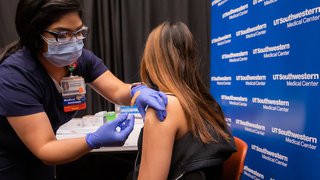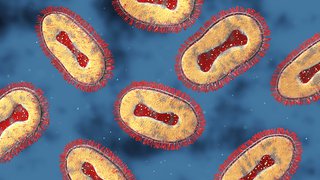The infectious diseases specialists at UT Southwestern Medical Center are recognized authorities in the diagnosis and treatment of infectious diseases such as AIDS and HIV, hepatitis, meningitis, pneumonia, sexually transmitted diseases, methicillin-resistant Staphylococcus aureus (MRSA), and other conditions.
Infectious diseases are disorders caused by microorganisms – such as bacteria, viruses, fungi, or parasites – that are normally harmless, but may cause disease under specific conditions. Many of these microorganisms colonize either in or on our bodies.
While some infectious diseases are passed from person to person, others are transmitted by insect or animal bites. Ingesting contaminated food or water can also cause illness.
Signs and symptoms vary from disease to disease, but fever and chills are common.
Many infectious diseases, including chickenpox, can be prevented by vaccines. Frequent and thorough hand-washing is an effective protective measure.
Diagnosis and Treatment
Some infectious diseases can be easily treated, but others require specialized diagnosis and treatment. Our infectious diseases specialists are recognized authorities in the diagnosis and treatment of infectious diseases in children and adults.
Combining expert and compassionate care with state-of-the-art medical resources, UT Southwestern provides advanced health care services that make a difference in patients’ lives. Faculty physicians care for patients with inherited or acquired immunodeficiency, including those receiving immunosuppressive therapy for cancer, organ transplantation, bone marrow, and stem cell transplantation. In addition, our physicians treat patients with inflammatory bowel disease, rheumatologic disorders, and a wide variety of classic as well as unusual infectious disease problems.
Our faculty conducts cutting-edge clinical, translational, and basic science research into the origins and treatment of common and emerging infectious diseases. That work is leading to advanced treatments for infectious diseases.













